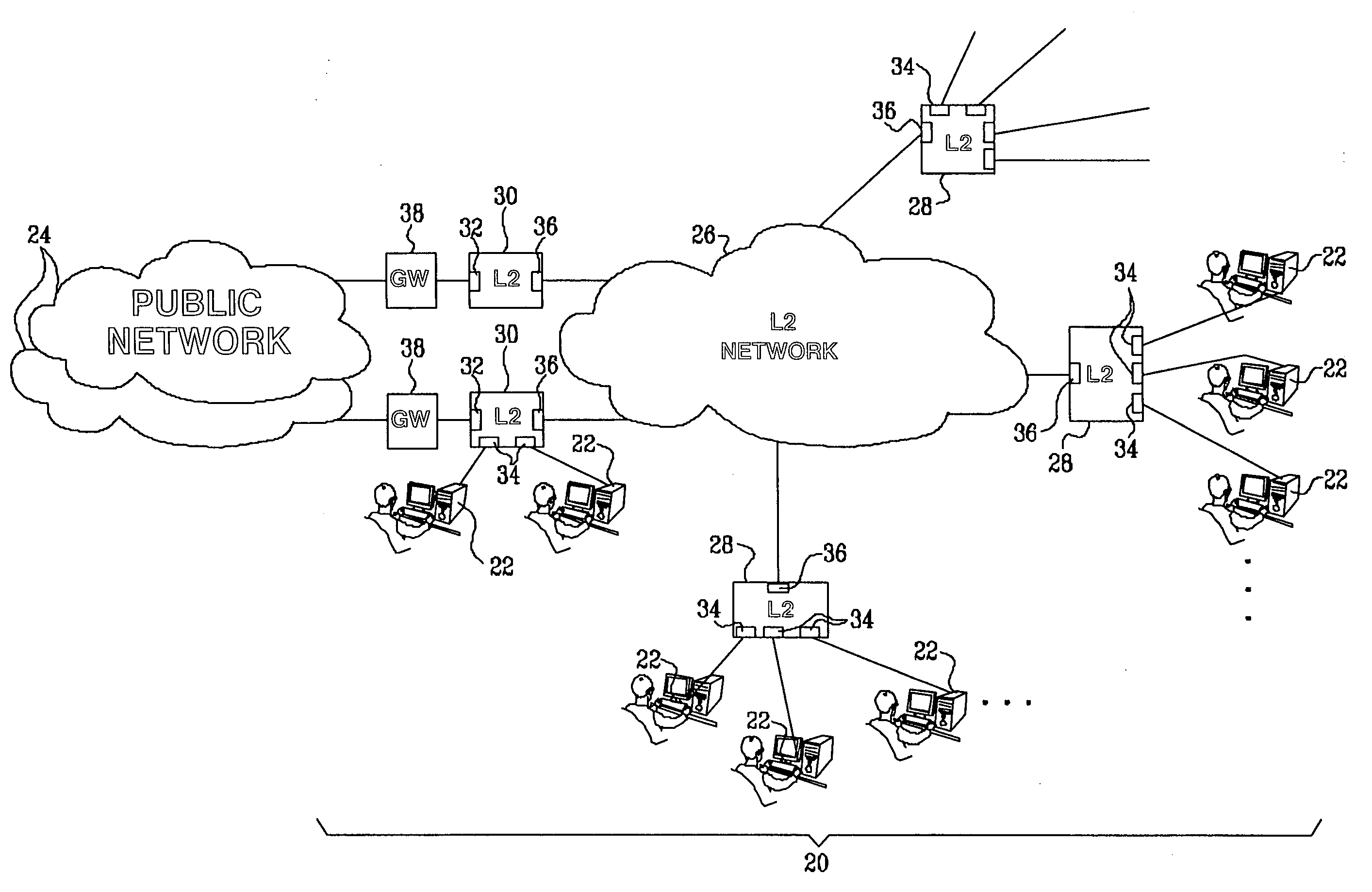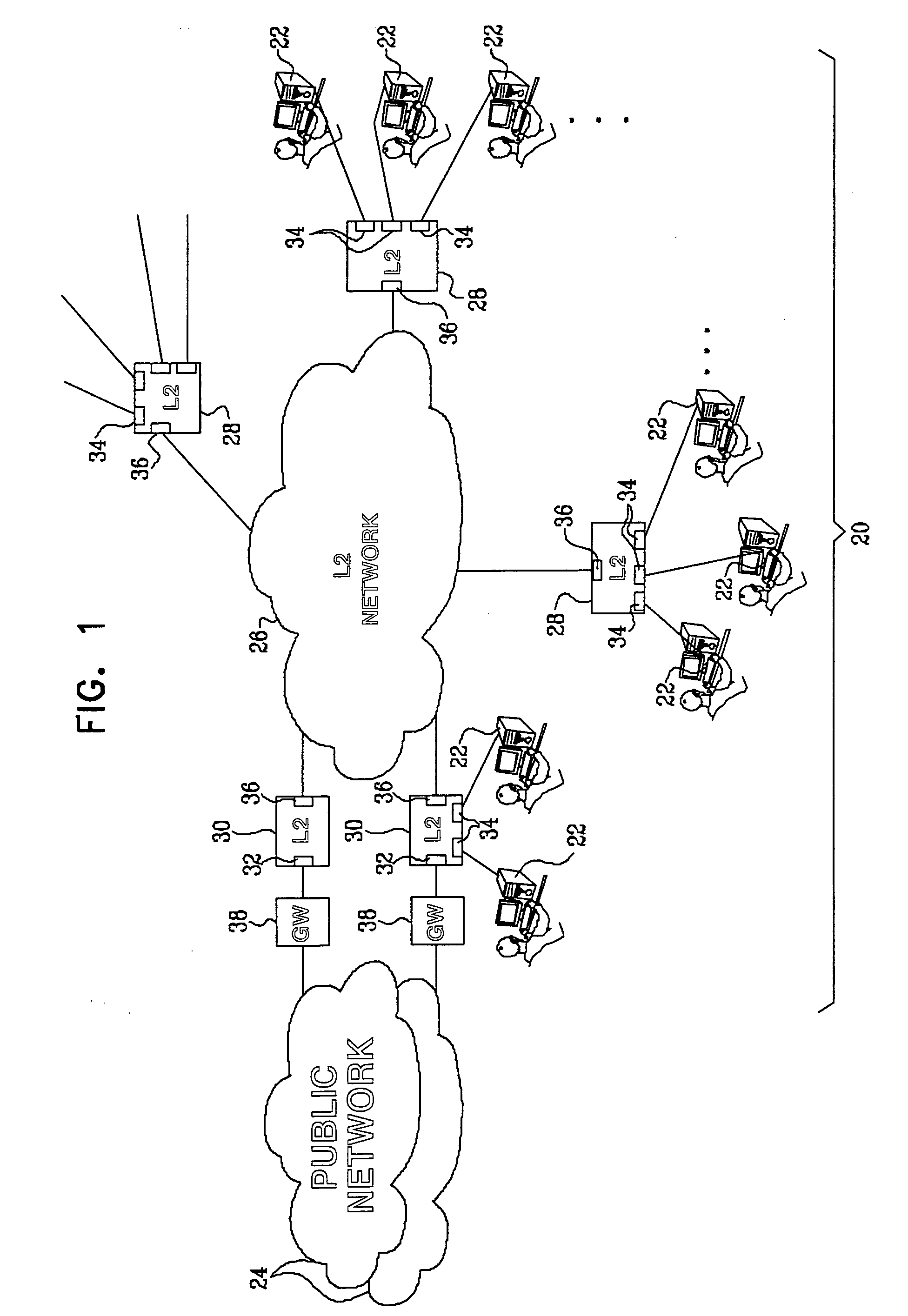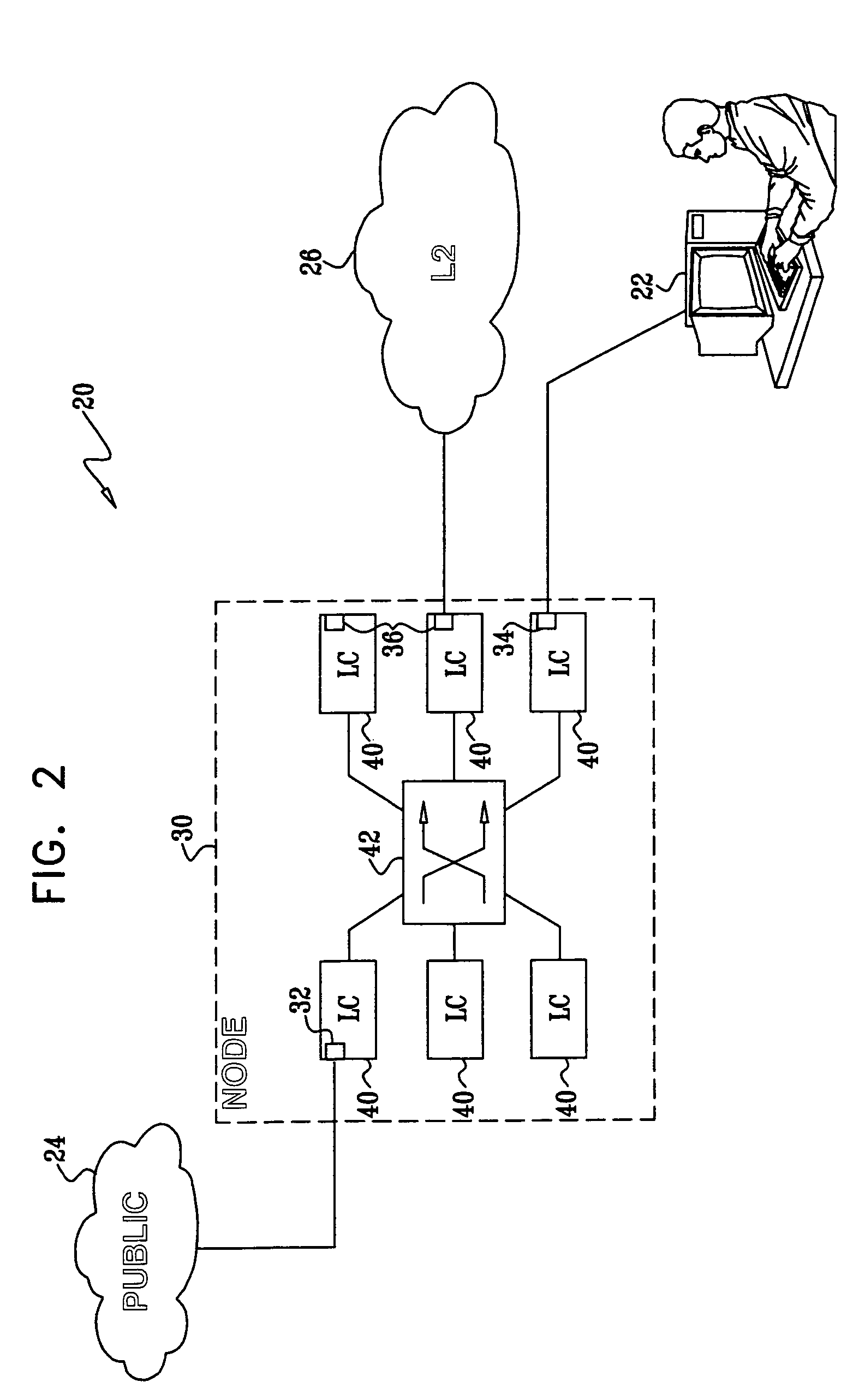Point-to-multipoint functionality in a bridged network
a bridged network and multi-point technology, applied in the field of communication networks, can solve the problems of increasing the complexity of provisioning, limited scalability, and inability to support efficient multicast solutions, and achieve the effect of easy and efficient provisioning, adding and changing nodes in the network, and unlimited scalability
- Summary
- Abstract
- Description
- Claims
- Application Information
AI Technical Summary
Benefits of technology
Problems solved by technology
Method used
Image
Examples
Embodiment Construction
[0032]FIG. 1 is a block diagram that schematically illustrates an access network 20, in accordance with an embodiment of the present invention. Network 20 may be operated, for example, by an ISP in order to permit customer premises equipment (CPE), such as computers 22, to access one or more public networks 24, such as the Internet, via a Layer-2 bridged network 26. Network 20 is configured for P2MP operation between aggregation nodes 30 and computers 22, as is described in detail hereinbelow. This arrangement permits computers 22 to communicate with servers and other client computers via networks 24, as well as to receive network services, such as video over IP multicast. Typically, aggregation nodes 30 connect to networks 24 via suitable gateways 38, as are known in the art. Such gateways may be configured by the ISP to provide routing and security functions, and may also generate service records for billing purposes.
[0033]Alternatively, a similar configuration of network 20 may b...
PUM
 Login to View More
Login to View More Abstract
Description
Claims
Application Information
 Login to View More
Login to View More - R&D
- Intellectual Property
- Life Sciences
- Materials
- Tech Scout
- Unparalleled Data Quality
- Higher Quality Content
- 60% Fewer Hallucinations
Browse by: Latest US Patents, China's latest patents, Technical Efficacy Thesaurus, Application Domain, Technology Topic, Popular Technical Reports.
© 2025 PatSnap. All rights reserved.Legal|Privacy policy|Modern Slavery Act Transparency Statement|Sitemap|About US| Contact US: help@patsnap.com



